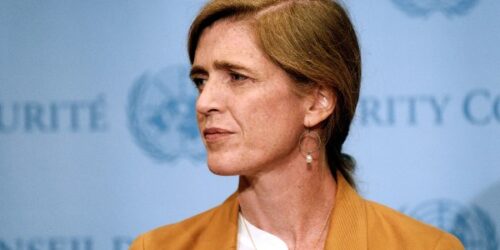Hungary Labels London a “No-Go Zone” Amidst Immigration Concerns: A Closer Look
The intersection of immigration and urban dynamics often leads to complex discussions on cultural integration and safety perceptions. Hungary’s recent characterization of London as a “no-go zone” due to high immigration has sparked debate, shedding light on the intricacies of this sensitive topic and its potential impact on international relations.

Hungary’s Assertion
Hungary’s labeling of London as a “no-go zone” due to high immigration highlights the perceived challenges associated with population movement and cultural assimilation. The term “no-go zone” typically implies areas that are considered unsafe or socially isolated due to various factors, including crime rates and tensions.
Immigration: A Multi-Dimensional Issue
Immigration involves a blend of economic, social, and cultural considerations. Many countries seek a balance between embracing diversity and ensuring societal cohesion. The suggestion that elevated immigration contributes to “no-go zones” points to concerns about integration and the potential for pockets of isolation.
Impact on International Relations
Describing a prominent global city like London as a “no-go zone” can strain diplomatic relationships, particularly when such statements originate from another nation. Diplomacy thrives on constructive dialogue and cooperation, making it crucial to approach discussions about sensitive topics with a sense of responsibility.
London’s Counterpoint
In response to Hungary’s assertion, London has vehemently contested the label, highlighting its rich diversity, safety record, and commitment to inclusivity. The city’s rejoinder underscores its dedication to fostering an environment that promotes coexistence and mutual respect among its residents.
Navigating Perception and Reality
The notion of “no-go zones” often rests on perceptions that may not necessarily mirror reality. While certain areas might face challenges related to integration, it is important to avoid broad generalizations that perpetuate stereotypes and hinder productive discourse.
Role of Media and Public Discourse
Media and public figures play a crucial role in shaping public perceptions. Conversations surrounding immigration should be anchored in accurate information and nuanced analysis. Unsubstantiated claims can fuel divisive narratives and impede constructive conversations about integration and safety.
Striking a Balanced Dialogue
Hungary’s characterization of London as a “no-go zone” due to high immigration underscores the intricacies of discussions centered around immigration. While legitimate concerns about integration and social harmony may exist, these conversations must be approached with care, accuracy, and a consideration of potential implications for diplomatic ties. In a global landscape grappling with identity, diversity, and security, fostering informed and respectful dialogue remains pivotal for nurturing understanding and cooperation among nations.



